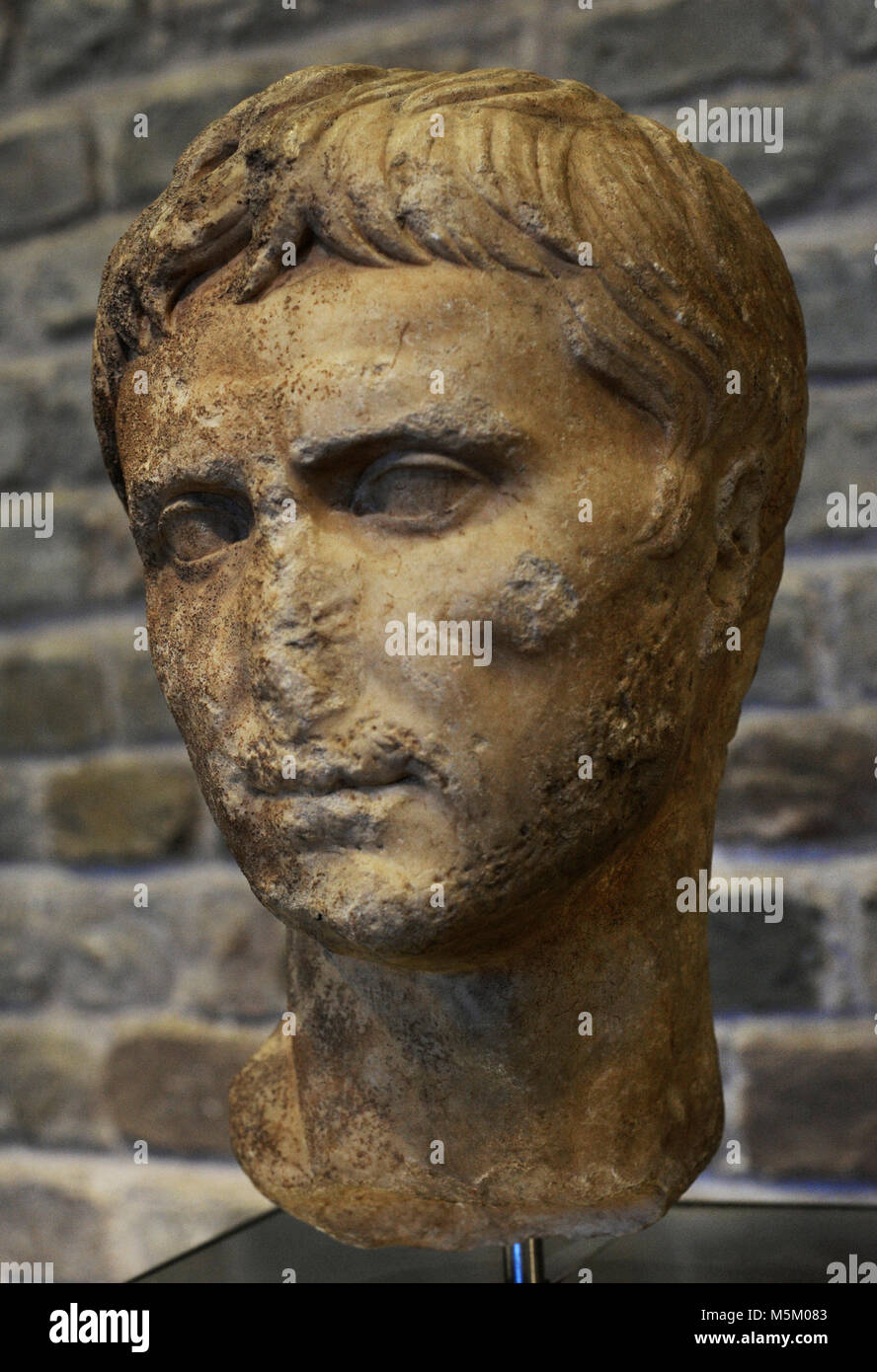

This had much to do with his upbringing in a country town as opposed to the large city of Rome. Growing up, Octavian excelled in military practice and planning, and he was characterized by a combination of a natural conservatism and political ambition. According to some sources, Julius Caesar named Octavian his son by way of adoption. Atia was Julius Caesar's niece, making Octavianus (thereafter Octavian) the heir of Julius Caesar, the imperator of Rome at that time. in Rome, to Atia (his mother) and Octavius (his father). Augustus' Autobiography is lost, but a record of his public achievements written by himself and originally inscribed on bronze pillars, in front of his Mausoleum in Rome-the Res Gestae Divi Augusti- is extant in several copies in Greek and Latin from Asia Minor.Augustus was born as Gaius Julius Caesar Octavianus on September 23, 63 B.C. Horace, Virgil, Ovid, Propertius, Tibullus, and Livy were the glories the Augustan Age, a name given in France to the reign of Louis XIV, in England to that of Queen Anne. Though not a charismatic figure, he had a gift for using the talents of others, both in public life and in the cultural sphere. A statesman of exceptional skill, he brought about the difficult transition from republic to empire and provided the Roman world with viable institutions and a lasting period of peace. His domestic life was clouded with setbacks and disasters, though he eventually achieved an acceptable succession with his stepson Tiberius, whom he adopted in 4 AD. Abroad, he pursued a policy of calculated imperial conquest, and vastly enlarged the territory of the Roman empire in central and northern Europe, though his policy had to be brought to a halt when disaster struck in his later years, with the revolt of Pannonia (6 AD) and the loss of three entire legions in Germany under Varus. He legislated to mould the fabric of Roman society and beautified the city of Rome it was his proud boast that he had found the city built of brick and left it built of marble. At home and abroad his declared policy was one of national revival and restoration of traditional Roman values. Henceforward, Augustus was in all but name the sole ruler of the Roman empire, though his rule had to be disguised in republican forms, and the search for an acceptable constitutional formula to clothe his autocracy took nearly a decade and several settlements (27, 23, 19 BC).

In 29 BC, after regulating affairs in Egypt, Greece, Syria, and Asia Minor, Augustus returned to Rome in triumph, and closing the temple in Janus, proclaimed universal peace. Antony and Cleopatra committed suicide Antony's son by Fulvia, and Caesarion (allegedly the son of Caesar and Cleopatra), were put to death. At length, war was declared against Cleopatra, whom had joined in 37 BC, and by the naval victory in Actium (31 BC) Augustus became the sole ruler of the Roman world. He ingratiated himself with the Roman people and misrepresented the actions of Antony in the east. Augustus gradually built up his position in Italy and the west, eliminating the treat of Pompey's son, Sextus, in Sicily, and forcing Lepidus to retire from public life (36 BC). The Roman world was divided again, Augustus taking the western half and Antony the eastern, while Lepidus had to be content with Africa. Difficulties between Augustus and Antony, caused by Antony's wife Fulvia, were removed by her death and Antony's marriage to Octavia, sister of Augustus. Their power was soon made absolute by the massacre of their opponents in Italy, and by the victory at Philippi over the republicans under Brutus and Cassius (42 BC). He obtained Africa, Sardinia and Sicily Antony, Gaul and Lepidus, Spain. When Antony returned from Gaul with Lepidus, Augustus changed sides and joined them in forming a triumvirate. Marcus Antonius refused at first to surrender Caesar's property, but Augustus out-maneuvered him in the campaign of Mutina, gained the consulship, and carried out Caesar's will (43 BC). At the time of Caesar's assassination (March 44 BC), Augustus was a student at Apollonia in Illyricum, but returned at once to Italy to claim his inheritance. He became Gaius Julius Caesar Octavianus through adoption by Caesar in his will (44 BC), and later received the name Augustus, meaning sacred or venerable, in recognition of his services and position (27 BC). Gaius Julius Caesar Octavianus Augustus (63 BC to 14 AD) the firstRoman emperor, the son of Gaius Octavius, senator and praetor, and Atia, Julius Caesar's niece.


 0 kommentar(er)
0 kommentar(er)
